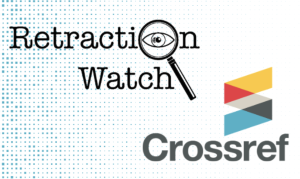
Would you consider a donation to support Weekend Reads, and our daily work?
The week at Retraction Watch featured:
- Swedish beauty study that sparked ‘storm of criticism’ is cleared
- Exclusive: Probe suggests new retraction awaiting embattled Korean heart doctor
- Nature pulls study that found climate fears were overblown
- Nature pulls study that found climate fears were overblown
Our list of retracted or withdrawn COVID-19 papers is up to well over 350. There are now nearly 43,000 retractions in The Retraction Watch Database — which is now part of Crossref. The Retraction Watch Hijacked Journal Checker now contains 200 titles. And have you seen our leaderboard of authors with the most retractions lately — or our list of top 10 most highly cited retracted papers?
Here’s what was happening elsewhere (some of these items may be paywalled, metered access, or require free registration to read):
Continue reading Weekend reads: Who should pay for sleuthing?; the Gino retraction requests; university ‘halts projects over fraud investigation’

